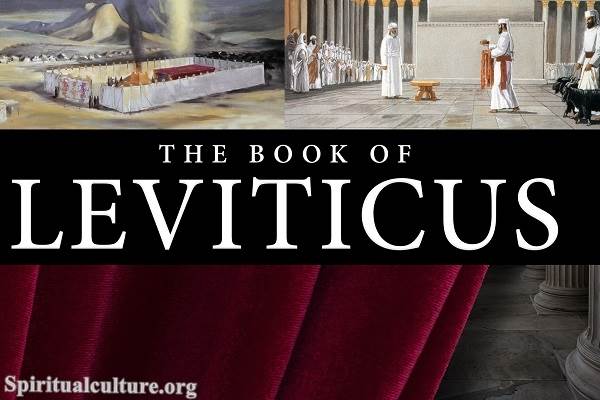The Book of Leviticus, the third book of the Torah and the Old Testament, is a remarkable piece of religious text that holds a significant place in the context of Judaism. Its name, ‘Leviticus,’ is derived from the Greek word ‘Leuitikon,’ meaning ‘pertaining to the Levites.’ The Levites were one of the twelve tribes of Israel, specifically the tribe that was designated to serve in the Tabernacle. In the Hebrew Bible, it is called ‘Vayikra,’ which means ‘And He called,’ reflecting the opening words of the book.

Leviticus Meaning
The Book of Leviticus is mainly concerned with religious rites, rituals, and laws. The Leviticus meaning can be understood as a guidebook for the Levites, who performed the duties of priests in the ancient Israelite religion. It outlines the procedures for various offerings and sacrifices, the consecration of priests, laws related to religious and moral conduct, and the observance of religious festivals.
Summary of Leviticus
The Book of Leviticus is divided into several sections, each dealing with different aspects of religious life. The first seven chapters provide detailed instructions for various types of sacrifices, including burnt offerings, grain offerings, peace offerings, sin offerings, and guilt offerings. Chapters 8 to 10 narrate the ordination of Aaron and his sons as priests, while chapters 11 to 15 discuss various laws regarding cleanliness and uncleanliness.
The 16th chapter, also known as the Yom Kippur chapter, describes the annual ritual of atonement performed by the high priest. The following chapters (17-26), often referred to as the Holiness Code, contain laws related to various aspects of daily life, including dietary laws, sexual conduct, and ethical behavior. The final chapter, Leviticus 27, deals with vows and tithes.
Leviticus in the Bible
In the Bible, the Book of Leviticus serves as a bridge between the Book of Exodus and the Book of Numbers. While Exodus narrates the story of the Israelites’ escape from Egypt and their covenant with God at Mount Sinai, Numbers chronicles their journey through the wilderness towards the Promised Land. Leviticus, positioned in between, provides the religious laws and guidelines that the Israelites were to follow during this journey and beyond.
Leviticus Law
The laws outlined in the Book of Leviticus, often referred to as the Levitical or Leviticus laws, form an integral part of the biblical law. These laws cover a wide range of topics, from religious rituals and ceremonies to moral and ethical conduct. Some of the most well-known Leviticus laws include the prohibition of consuming certain types of food (like pork and shellfish), the ban on wearing clothes made of mixed fabrics, and the command to love one’s neighbor as oneself.
Leviticus in Judaism
In Judaism, the Book of Leviticus holds a central place. It is read in synagogues every year during the third portion of the weekly Torah reading cycle. Many of the rituals and laws outlined in Leviticus are still observed by Orthodox Jews today, including the dietary laws (kashrut), the laws of family purity (niddah), and the observance of Yom Kippur, the Day of Atonement.
Moreover, the ethical teachings of Leviticus, particularly the command to love one’s neighbor as oneself, form a cornerstone of Jewish morality. The rabbis of the Talmud, the central text of Rabbinic Judaism, often refer to Leviticus and its laws in their discussions and debates.
In conclusion, the Book of Leviticus, with its detailed laws and rituals, serves as a fundamental guide for religious practice and moral conduct in Judaism. It reflects the ancient Israelites’ quest for holiness and their desire to maintain a close relationship with God. Despite its ancient origins, Leviticus continues to be relevant today, offering timeless wisdom and guidance for leading a life of faith and integrity.
